The 45th JTTRI Symposium on Research: Spring 2019
- Session
- Integrated Transport, Arterial Transport, Urban Transport
- Railways and Railway and Area Development
- Road transport
- Maritime
- New Technology and Innovation
- Safety, Security, Disaster Prevention, Environment
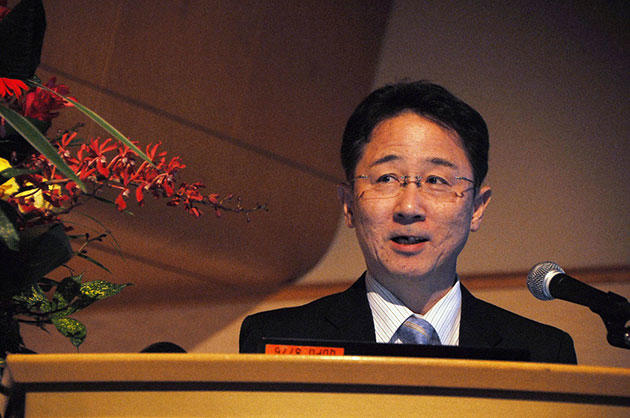

| Organizer | Japan Transport and Tourism Research Institute (JTTRI) |
|---|---|
| Date / Time | Mon, May 20,2019 13:00~17:30 |
| Venue | Kaiun Club (Hirakawa-cho, Chiyoda-ku, Tokyo) |
Event Summary
JTTRI conducts policy proposals, surveys and researches on transport and tourism with the aim of "bridging academic research and practical demands."
This symposium is held in order to contribute to various efforts of related organizations and private companies based on various policies of Ministry of Land, Infrastructure, Transport and Tourism. We give lectures and presentations every time on the theme of important issues surrounding transport and tourism, and not only reports from research fellows, but also special lectures inviting top executives of transportation companies and researchers from domestic and overseas.
Program of the seminar is as the following
| Opening Remarks |
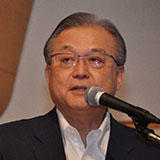
Masafumi Shukuri |
|---|---|
| Honorable Guest Remarks |
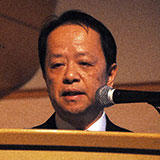
Noriyoshi Yamagami |
| Remarks |
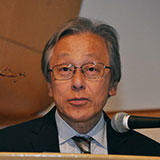
Hirotaka Yamauchi |
| Session(1) |
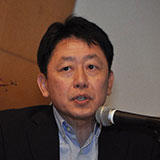
Kazuhisa Fukasaku “Survey on the Possibility of Utilizing AI, etc. in the Transport and Tourism sectors” (Japanese) While attention has been focused on the dramatic evolution of Artificial Intelligence (AI) in recent years, attention is also being paid to the use of AI in the transport and tourism sectors. The purpose of this survey is to (1) grasp the actual situation of AI utilization in these sectors, and (2) identify the policy issues and survey and research issues that should be prioritized for the utilization of AI in these sectors. In this presentation, Mr. Fukasaku will firstly report the results of sorting out the progress of AI utilization in these sectors, and then, report the results of discussions at opinion exchange meetings involving experts and practitioners to identify issues. |
| Session(2) |
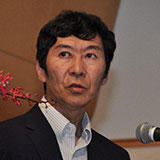
Yasuhiro Sega “Research on Improvement of Port Efficiency in Japan by Automation and AI” (Japanese) It is feared that the number of workers will decrease and the skill of skilled workers will be lost at the ports in Japan due to the declining birthrate and aging population. On the other hand, science and technology such as AI and IoT have been advancing in recent years, and MLIT is trying to advance the AI terminal policy to improve productivity and working environment at ports by using such technologies. The purpose of this research was to analyze the problems and quantifications related to the improvement of port efficiency in Japan through automation and AI, and conducted analysis using production functions. As a result, Mr. Sega gained knowledge about the current issues of automated equipment and ports that should be improved in efficiency. |
| Session(3) |
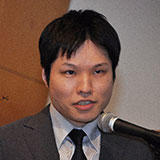
Ryosuke abe “Consideration for Introducing Self-driving Cars on Buses and Taxis ” (Japanese) In Japan, a number of demonstration experiments have been carried out with the aim of commercializing services using autonomous vehicles from around 2020. |
| Special Lecture |
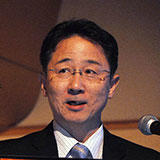
Keiji Yamamoto “Toward the Creation of a Smart Mobility Society” With the progress of electrification, intelligence, and information technology, the automobile industry is about to undergo a major revolution once every 100 years. |
| Discussion |
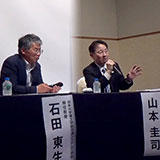
Haruo Ishida |
| Session(4) |
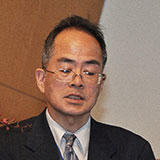
Takuto Hayashida It is considered that the vitalization of regional transportation and the expansion of the exchange population are issues, and in order to address them, it is necessary to analyze the trends of passengers such as railways. In this research, Mr. Hayashida constructed a statistical model for the number of passengers by economic and demographic structure. As a result, he was able to clarify the effects of economic scale, real fare, and the number of cars on the number of passengers per capita. Among them, it was recognized that the coefficient (elasticity) of the number of workers was large, and it was found that the increase in the number of workers was particularly large in the increase in the number of passengers from 2013 to 2017. |
| Session(5) |
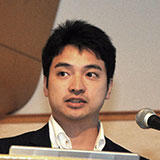
Akira Hosono “Actual Situations of Tourism and Railway Use of Foreign Visitors in the Tokyo Area” (Japanese) The number of foreign visitors, which has rapidly increased in recent years, has a great impact on Japanese society. |
| Closing Remarks |

Makoto Harunari |
Outline of the seminar
The researchers made five reports on the theme of the impact on the transport and tourism sectors by utilizing new technologies that are rapidly expanding globally, such as IoT and AI.In this special lecture, Mr. Keiji Yamamoto, Executive Vice President, TOYOTA Connected Company, gave a lecture entitled "Toward the Creation of a Smart Mobility Society."
After that, he had a discussion with Prof. Haruo Ishida, Specially Appointed Professor, Department of Transportation Systems Engineering, College of Science and Technology, Nihon University.
On the day, Mr. Noriyoshi Yamagami, Vice-Director-General, Policy Bureau, Ministry of Land, Infrastructure, Transport and Tourism, gave honorable guest remarks, and it was a successful symposium with over 360 participants from universities and other research organizations, the Ministry of Land, Infrastructure, Transport and Tourism, local governments, railway companies, airline companies, bus/taxi companies, other transportation companies, consultants, general contractors, automotive manufacturers, and media.


